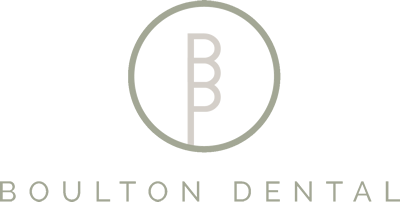
12 Aug Safe Dentistry While You’re Pregnant
Are you pregnant? If so, congratulations! I do hope that you’ve prepared yourself for a whole lot of unsolicited advice from (mostly) well-meaning people, but your neighbour’s sister’s husband’s cousin might not always have the same expertise as a health professional – especially when it comes to dentistry. Some people say that you should avoid visiting the dentist during pregnancy, which is a huge misconception, and the exact opposite is true. Just like the rest of your body – your teeth, gums and mouth are affected by hormonal changes during pregnancy. According to the Australian Dental Association, you will usually notice changes in the health of your gums around the two-month mark. If you’ve reached this point, you might find that your gums bleed more easily when you brush or floss, which is a sign of gum disease commonly known as ‘pregnancy gingivitis’. Though it is often temporary and if you’ve kept up a regular routine of brushing, flossing and dental visits before your pregnancy, it shouldn’t affect you severely.
Pregnancy can sometimes worsen chronic gum infection, which is caused by ongoing and untreated gingivitis. So if you are experiencing gum problems during pregnancy, it’s essential to get them checked by a dentist after you have given birth. While most types of issues caused by pregnancy hormones tend to resolve after delivery, a small number of women have developed a deeper level of gum disease that will need treatment to resolve.
Morning sickness is another common side effect of pregnancy, which can also have adverse effects on your oral health. When we vomit, the acid from our stomach is forced into our mouth, and this has an erosive effect on our teeth. You might be tempted to brush your teeth immediately after you throw up but doing so can cause more damage to your teeth by stripping away the enamel and aggravating damage further instead of cleaning it away. Try rinsing your mouth out first to neutralise the acid before you brush.
Some women may also experience unusual food cravings while they are pregnant. A desire for sugary snacks may increase your risk of tooth decay, so do your best to snack on low-sugar foods when possible. If nothing can keep that sweet craving at bay, try to choose healthier options like fresh fruits. And it always helps to rinse your mouth with water or an alcohol-free mouth rinse after consuming sugary snacks.
If there is a chance you might be pregnant, for example, if you and your partner are trying, but it’s early days, it’s still worth telling your dentist. They can tailor your treatment with your pregnancy in mind. Luckily, the vast majority of dentistry is entirely safe during pregnancy – there’s a just a few precautions your dentist will take to ensure the safety of you, and your baby.
Local Anesthetic
The numbing agents used in the average, everyday dentistry have been proven safe for pregnancy, so there’s no reason to avoid simple routine treatment because anesthetic is required. Scale and cleans, fillings, and simple extractions are all safe, but if you’re feeling unsure – always chat to your dentist about it.
Sedation
For non-urgent treatment, it’s best to avoid being sedated unless it is absolutely necessary. While local anesthetic does not pose a risk, pregnancy is not a great time to have that elective wisdom tooth removal under a general anesthetic. And your dentist would only recommend doing so if it is for an essential treatment that can’t be delayed until after the birth of your baby.
X-Rays
The modern, digital dental radiographs give off an extremely low dose of radiation, and the radiation exposure is even less than you’d get from a domestic flight. However, less is always best with radiation, so non-emergency x-rays are best avoided until after the birth of your baby. Although, it is essential to keep risks in perspective with things like this. If you have a widespread infection in your mouth that requires an x-ray to be treatable, this is going to be much lower risk to you and your pregnancy than needing several courses of antibiotics and painkillers. Again, don’t be afraid to chat with your dentist if you’re feeling unsure – they are there to assist you.
Cosmetic Treatments
Elective, cosmetic treatments such as veneers and whitening can potentially be done safely during pregnancy, but the most sensible choice is to wait. As we said earlier, hormonal changes during pregnancy affect your gums, which make you more susceptible to gingivitis, so whitening gels and veneer preparations can be more irritating in this situation.
If you would like to book in a consult with us contact this number 02 4961 6300 or book online by clicking here

Sorry, the comment form is closed at this time.